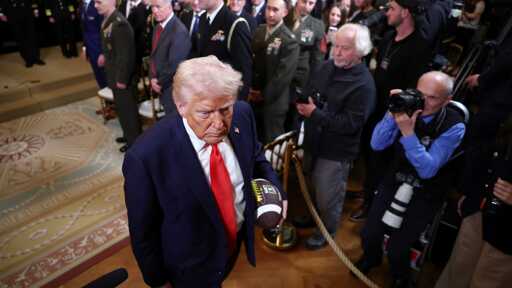So how does this all work in practice? You order something from China and it will be sent over on a ship. At what point do you pay for the item, what steps does it go through to get to you, and how/when do you pay the tariff to the government?
Say you pay the Chinese company $100 online for your order and they ship it. So it arrives on US soil. Who picks it up there, the USPS? Who determines what the tariff amount should be and collects it? Some shipping company or port authority inspector or what? At what point does someone deliver it to you and collect the tariff from you?
So the way this works is the importer of record pays the tariff when it gets to the US port.
So, scenario 1, you buy a product from an American company that imports either the whole product or some part of it from China. The American company pays the tariff and then decides how much of that to add to their costs.
Scenario 2, you buy from a Chinese seller that ships to the US like Temu. In these cases generally the seller is the importer of record, so they pay all applicable tariffs on your behalf, but in order to do so they’ll add it to your bill along with the shipping.
Scenario 3, you buy from a company in China that ships directly to you without acting as an importer. There are a bunch of options for this where you basically order stuff direct from manufacturers, and it seems like it’s going to be way cheaper because there are no tariffs or other import fees. But in reality what happens here is you are now the importer of record. There’s two ways this will play out; the government will either hold the item at the port of entry until you pay the fees, or it’ll arrive and then you’ll get a bill for the fees later. This can be really dangerous because you can end paying a whole lot more than you expected to.
There’s your next spam scam, then. “You owe tariffs on the goods you received from Amazon, pony up”
Thanks! that’s very clear.
So the main thing I wasn’t understanding was the idea that a seller like Temu would actually pay the tariff ahead of time–I didn’t realize they would do that, just figured they’d get paid for the product, ship it off and let the other end of the line deal with the tariffs part.
It depends on the seller. Generally if they’re set up to do business properly in the US, yes, they’ll take off things like tariffs and fees, because if they don’t it just tends to result in pissed off customers who refuse to pay the tariffs and then charge back on their credit card when they don’t receive their goods. It just makes more sense to handle all that on the customer’s behalf. Happy customers buy more things. When in doubt you need to contact their customer service and ask.
I thought the mango meathead couldn’t impose tariffs unless it was an emergency. I thought it was up to Congress to impose tariffs. That was why there was the sham of fighting fentanyl imports. How is that charade still being floated?
Well we do have an emergency, the catch is that the emergency is the person implementing the tariffs.




